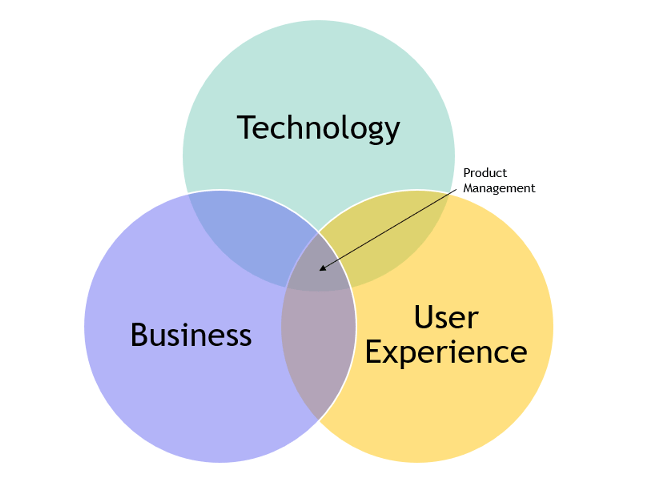There are multiple options we have to make a career in Salesforce. One of them is Product Manager. In this post, we talk about What a Salesforce Product Manager Does and What skill is needed to become a Product Manager in Salesforce. We discuss the Salesforce product manager’s responsibilities, skills, and average salary.
What is Salesforce Product Manager?
Salesforce platforms are used by a wide range of organizations, from large corporations with tens of thousands of users to small companies with a single team of users. While a Salesforce Administrator may be able to manage ongoing configuration needs on smaller Salesforce platforms, larger companies typically need at least one product manager to own the vision, strategy, and roadmap for their Salesforce platform.
Unlike a project manager who manages the timeline, budget, and resources of a project, a product manager is primarily concerned with the customer. Product managers are sometimes referred to as a mini-CEO, though unlike a CEO, product managers need to influence others without having any authority over them.
What does Salesforce Product Manager Do?
The field of product management is the intersection of technology, business, and user experience (UX). Product managers must know the business well enough to represent the voice of the customer and manage their business stakeholders. They also need a strong sense of empathy to connect with their users and ensure experiences are intuitive. Finally, they must understand the technology deeply enough to easily evaluate the feasibility and tradeoffs of the functionality they consider building. Only with this combination of knowledge can a product manager efficiently design the ideal experience for their product’s users.

1. Product Vision, Strategy, and Roadmap
Product managers are responsible for building the product vision, product strategy, and product roadmap in partnership with their stakeholders. The vision is a one-sentence description of what the product will mean to the customer, and this should never or very rarely change. The product strategy is the high-level plan needed to realize the product vision and may be updated occasionally. By contrast, the product roadmap is the tactical execution of the product strategy and should change frequently as items are reprioritized and become more defined. The roadmap contains any known features and business objectives to be met along with a relative timeline. While items currently in design or development should have more details identified, items further in the future contain fewer details around functionality and dates.
Depending on the scale of the company and the project management methodology being followed, product managers may work with product owners or may fulfill both functions themselves. Some companies title the product manager role as the product owner and the product owner role as a business analyst. In companies with multiple roles, the product manager writes higher-level features that are broken into smaller, more detailed user stories written by the product owner for the development team to build. The product owner works more closely with the development team while the product manager spends most of their time with business stakeholders, users, and dependent teams.
2. Maximizing Value for the Customer
Regardless of the title or team structure, a product manager ultimately owns the product and is responsible for its successes. Product managers are tasked with ruthlessly prioritizing what is built to ensure the highest value is delivered for the customer. This requires analyzing the expected value of each proposed feature as well as measuring the resulting value of released functionality. Product managers are constantly adjusting the product roadmap to maximize value based on their findings and any changes in the market or business. With every change, product managers ensure the product roadmap continues to align with business stakeholders, is viable for development, and delivers value to the customer.
Product Manager direct the team with a clear and descriptive set of requirements and deliver product features and functions by balancing customer need with business strategy, minimized defects, and technical debt. Salesforce product managers should have complete knowledge of Salesforce-related products, services, and products.
Salesforce Product Manager job description
In this role, Product Manager act as the liaison between business users and technical resources. This includes supporting the implementation of business solutions by building relationships and partnerships with key stakeholders; identifying business needs; determining and carrying out necessary processes and practices; monitoring progress and results; recognizing and capitalizing on improvement opportunities; and adapting to competing demands, organizational changes, and new responsibilities.
Primary Responsibilities for Salesforce Product Manager
- Build strategic partnerships/relationships with stakeholders, across the organization. Profile their roles and how they can be better served by various business solutions and process improvements.
- Partner with vendors to understand product growth potential and future opportunities that may benefit the business.
- Conduct business and systems process analysis, at a complex level, resulting in data, process and software documentation and improvement recommendations.
- Create the documentation necessary to facilitate change and to add clarity to all stakeholders, both technical and non-technical. (ex. KPIs/acceptance critter, diagrams, mockups, and other communication resources).
- Work with key stakeholders and product teams (Development, Marketing Digital, Finance, etc.) to rank business requirements, and plan release roll-outs.
- Regularly participate in product team meetings and communicate with stakeholders of all levels to ensure the goals are clear and the vision is aligned with business objectives.
- As needed, actively participate in implementing change (ex. Creating reports, configuring solutions, Training & release documentation etc.)
- Monitor progress and results; recognize and capitalize on improvement opportunities.
- Work with cross-functional (process, design, build, test) teams to deliver features and products
- Demonstrate ability to influence customers and product managers through credible knowledge and experience, persuasion and influencing skills.
- Lead customer and stakeholder interviews to align product design with roles (personas)
- Own the product backlog; continuously groom and ensure that an agreed scope is always ready to move into development.
- Other activities that contribute to optimizing business process and the use of business solutions to meet company objectives.
Salesforce Product Manager Salaries
An average Salesforce Product Manager earns 130K+. This estimate is based upon 130 Salesforce Product Manager salary report(s) provided by employees or estimated based upon statistical methods.
How to Become Salesforce Product manager
Here are some Salesforce product manager skills that are needed to become a Salesforce product manager.
1. Salesforce Product knowledge
Solid understanding of CRM and related business solutions and must have knowledge of Salesforce-related products. With that Product Manager will able to improve the products, product lines, product features, and more
2. Problem-Solving
Ability to facilitate a team to consensus on scope, design decisions, and implementation decisions. A problem-solving mindset is a key part of creating and brainstorming product ideas in the Product Manager role.
3. Agile development process
Understanding of the agile development process. Familiarity with requirements techniques such as user stories, use cases, and informal modeling.
4. Critical Thinking And Analytical Skills
Expertise in conceptual modeling and related documentation.
5. Communication Skills
Outstanding communication, presentation, and leadership skills. Must be extremely data-driven and analytical. Product manager work with key stakeholders and product teams (Development, Marketing Digital, Finance, etc.) to rank business requirements, and plan release roll-outs.
6. Time Management
Excellent organizational and time management skills also most important skill of product manager. Time management skills help product managers juggle everything on their plate, while still completing tasks efficiently and pushing products through to launch
Summary
The Salesforce product manager ensures that the company is using the right business solutions using the right Salesforce-related products, services, and Salesforce products.





Really Informative article. Thanks for sharing it.
thanks for this article. Do you take tutorials if someone wants to do this course?
Product Management experience outside (or inside) Salesforce is a bit of a prerequisite. A Salesforce PM salary might be high, but it’s a hard position to land if you’ve never been a product manager before.
Clean narrative and well explained. Thank you. Do you have a plan to post article like this on other management roles like Director of Salesforce Practice?